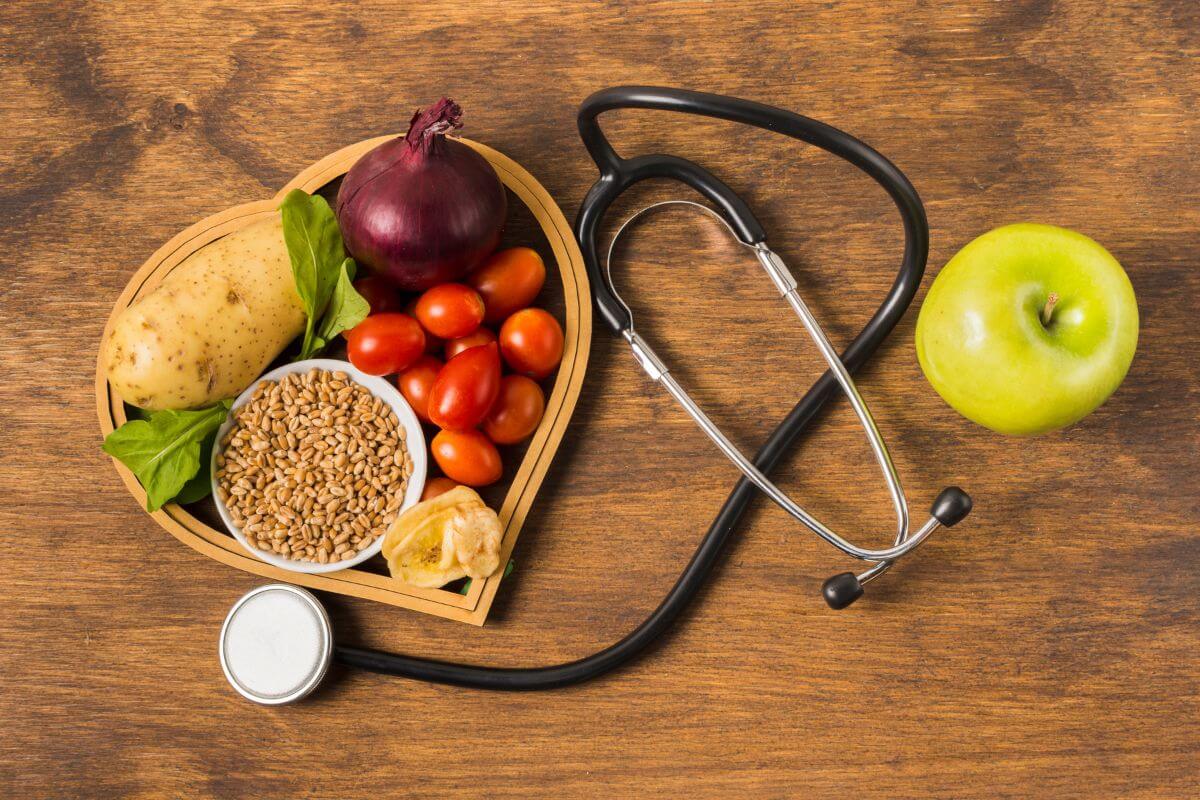Nutrition is the foundation of good health, yet it’s often overlooked in our busy lives. Proper nutrition can be defined as a balanced diet that includes all the essential nutrients necessary for our body’s growth, maintenance, and repair. Without adequate nutrition, we leave ourselves vulnerable to a host of diseases and health issues.
The importance of nutrition cannot be overstated. A balanced diet provides our bodies with the fuel it needs to function optimally, from providing energy for daily activities to supporting a healthy immune system. It’s no surprise that good nutrition is a key player in disease prevention, with research linking it to the prevention and management of chronic diseases such as cardiovascular disease, diabetes, cancer, and osteoporosis.
But what is the role of nutrition in disease prevention? It’s more than just eating a salad or taking a multivitamin. A healthy diet includes a variety of foods that provide the essential vitamins, minerals, and nutrients our bodies need to function optimally. In this article, we’ll explore the link between nutrition and disease prevention, the impact of poor nutrition on our health, and strategies for improving our diets to support good health.
So let’s dig in and learn more about the role of nutrition in disease prevention, and how we can all make small but impactful changes to improve our overall health.
The link between nutrition and disease prevention
Nutrition plays a vital role in maintaining good health and preventing various diseases. The key nutrients that are essential for our body include vitamins, minerals, protein, and fibre. These nutrients are important for maintaining our overall health and preventing chronic diseases.
Vitamins are organic compounds that our body needs to function properly. They play an important role in various bodily functions, including maintaining healthy skin, eyesight, and immune system. Different types of vitamins are present in a variety of foods. For instance, vitamin C is found in citrus fruits, while vitamin D is present in fatty fish like salmon and mackerel.
Minerals are inorganic compounds that our body needs to function properly. They are essential for maintaining healthy bones, teeth, and muscles. Calcium, magnesium, and iron are some of the important minerals that our body requires. These minerals are present in a variety of foods like dairy products, leafy green vegetables, and meat.
Protein is an important nutrient that our body requires for building and repairing tissues. It is also essential for maintaining healthy muscles, bones, and skin. Foods like meat, eggs, and dairy products are rich sources of protein.
Fibre is a type of carbohydrate that our body cannot digest. It plays an important role in maintaining digestive health and preventing various diseases. Fiber-rich foods include fruits, vegetables, whole grains, and legumes.
Good nutrition is also linked to the prevention of chronic diseases like cardiovascular diseases, type 2 diabetes, cancer, and osteoporosis. Cardiovascular diseases can be prevented by consuming a diet rich in fruits, vegetables, and whole grains. Type 2 diabetes can be prevented by maintaining a healthy weight, consuming a diet low in sugar and saturated fats, and being physically active. A diet rich in fruits, vegetables, and whole grains can also help prevent cancer. Osteoporosis can be prevented by consuming a diet rich in calcium and vitamin D.
By consuming a balanced diet that is rich in essential nutrients like vitamins, minerals, protein, and fibre, we can reduce the risk of chronic diseases and maintain good health. So, make sure to prioritize nutrition in your everyday life for a healthy and disease-free future.
The impact of poor nutrition on disease
Maintaining a healthy and balanced diet is essential for preventing chronic diseases and maintaining overall health. However, poor nutrition can have significant negative effects on our health. Now in this part of the article, we will explore the impact of poor nutrition on disease and how to avoid it.
One of the most significant consequences of poor nutrition is the development of deficiency diseases. These are diseases that arise from a lack of essential nutrients in the body, such as vitamins and minerals. For example, a lack of vitamin C can lead to scurvy, while a lack of iron can result in anaemia. Deficiency diseases can have severe consequences, including organ damage, stunted growth, and even death.
In addition to deficiency diseases, processed foods are another cause of poor nutrition. Processed foods are high in calories, unhealthy fats, sodium, and sugar, but often low in essential nutrients. Overconsumption of processed foods can lead to obesity, heart disease, and type 2 diabetes. It’s important to limit processed foods in our diet and focus on consuming whole, nutrient-dense foods.
So, how can we avoid the negative consequences of poor nutrition?
One of the most important strategies is to follow a healthy diet that includes plenty of fruits, vegetables, whole grains, lean protein, and healthy fats. Portion control is also crucial, as overeating can lead to weight gain and an increased risk of chronic diseases. Physical activity is another critical component of a healthy lifestyle, as it helps to maintain a healthy weight and reduce the risk of chronic diseases.
In conclusion, poor nutrition can have significant negative consequences on our health, including deficiency diseases, obesity, heart disease, and type 2 diabetes. By prioritizing a healthy diet that includes whole, nutrient-dense foods, portion control, and physical activity, we can avoid these negative consequences and maintain our overall health and well-being.
Strategies for improving nutrition and disease prevention
Maintaining a healthy diet is key to preventing diseases and promoting overall wellness. Here are some strategies for improving nutrition and disease prevention:
A. Recommendations for a healthy diet
Eating a balanced diet that includes all essential nutrients is crucial for maintaining good health. A healthy diet should include plenty of fruits and vegetables, whole grains, lean proteins, and healthy fats. It’s important to limit the intake of processed and sugary foods.
B. Importance of portion control
Portion control is another critical aspect of maintaining a healthy diet. Eating the right amount of food can help prevent overeating and weight gain, which can lead to chronic diseases such as heart disease and diabetes. Use smaller plates and pay attention to your body’s hunger cues to help with portion control.
C. The role of physical activity
Physical activity is essential for overall health and disease prevention. Regular exercise can help lower the risk of heart disease, stroke, and some types of cancer. Aim for at least 150 minutes of moderate-intensity activity per week, such as brisk walking or cycling.
D. How to make healthy eating a habit
Making healthy eating a habit takes time and effort, but it’s worth it in the long run. Try meal prepping to have healthy options readily available throughout the week. Experiment with new recipes and flavours to keep meals interesting. Additionally, consider seeking support from a registered dietitian or joining a nutrition program to help make healthy habits stick.
By incorporating these strategies into your lifestyle, you can make positive changes to your diet and reduce your risk of developing chronic diseases. Remember, small changes can make a big difference when it comes to your health.
Conclusion
Nutrition plays a crucial role in maintaining good health and preventing various diseases. A balanced diet that includes essential nutrients like vitamins, minerals, protein, and fibre is necessary for our body’s growth, maintenance, and repair. Deficiency diseases, obesity, heart disease, and type 2 diabetes are some of the consequences of poor nutrition. To avoid these negative consequences, it’s important to prioritize a healthy diet that includes whole, nutrient-dense foods, portion control, and physical activity. Strategies for improving nutrition and disease prevention include eating a balanced diet, planning meals ahead of time, cooking at home, and reading food labels. By making small but impactful changes to our diet and lifestyle, we can improve our overall health and well-being.







